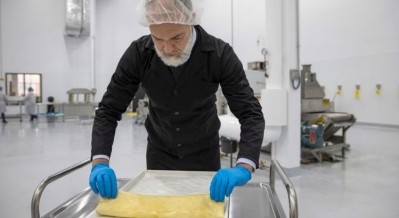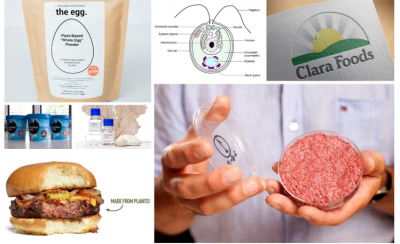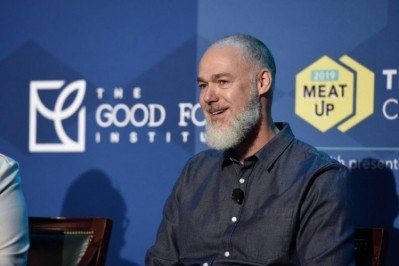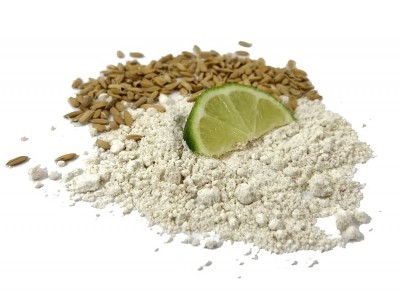Sustainable Bioproducts CEO: 'Microbes are pretty damn efficient. They make great protein and they do it really fast'
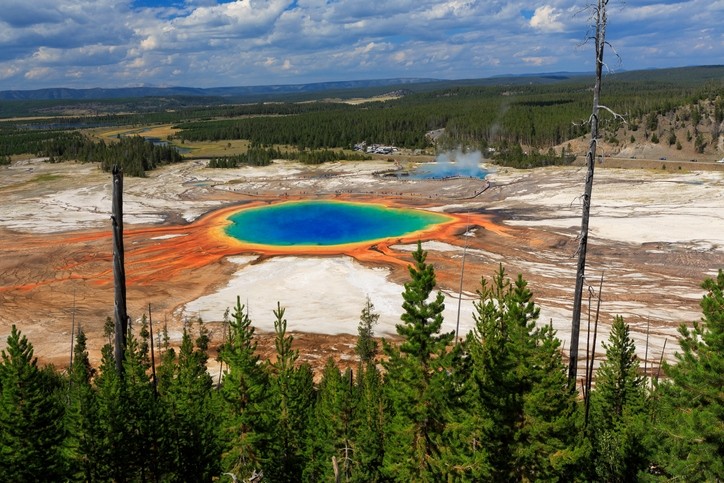
Right now, producing protein – whether from peas and soybeans, or cows and chickens – is resource-intensive and time-consuming, requiring large amounts of land, energy and water, observed Thomas Jonas, who has spent four years scrutinizing microbes that can survive in extreme environments such as the volcanic springs at Yellowstone National Park.
What makes these ‘extremophiles’ so alluring as a potential food source is that they have evolved to do more with less – that is, they can produce high quality protein (one of the fungal strains Jonas is working on has all the essential amino acids and a PDCAAS score of 0.93, which is close to animal protein) fast, with minimal inputs, he told FoodNavigator-USA.
There is this growing realization that microbes are pretty damn efficient
And at a time when demand for protein is increasing steadily, but the land available to grow it is constrained, finding more efficient sources of high quality protein is rapidly becoming a top priority for leading food companies and investors, noted Jonas, who has just raised $33m from high-profile backers* including Bill Gates and the venture arms of food giants Danone and ADM.
“There is this growing realization that microbes are pretty damn efficient. They make great protein and they do it really fast, you don’t have to plant a seed and harvest it six months later, and you can completely control the environment.
“There is a revolution going on in protein production and in the future I don’t think people care if the ‘cells’ are from cows or microbes. No one is attached to killing cows, as Pat Brown would say [the founder of plant-based meat co Impossible Foods], they just like the meat.”
Indeed, we are already eating foods from tiny micro-organisms either directly via ingredients such as spirulina, Quorn or AlgaVia protein-rich whole algae (from chlorella) or indirectly by eating sweeteners, flavors (and in future casein, whey and collagen/gelatin) that have been produced from yeasts or bacteria that have been engineered to produce the desired compounds more efficiently than plants or animals.
He added: “We tend to forget how quickly consumers adapt to new things. At one time in France, my home country, you could only buy yogurt from the pharmacy. The way people were eating 20-30 years ago is very different to today, so I think there is a lot more openness to new things than consumers are given credit for.”
‘We’re not using genetic manipulation and we’re not adding enzymes’
So how efficient is the production process?
“If you’re looking at a meat type of product, we can make two tons of that with one ton of starch or of glycerin, which is a byproduct of vegetable oil processing,” explained Jonas, who teamed up (in 2014) with Mark Kozubal, a geomicrobiologist at Montana State University who founded Sustainable Bioproducts with a view to developing biofuels, but like pioneers in the algae space, realized there was more commercial potential in food.
The inputs “include a simple carbon source, a simple nitrogen source, some trace elements,” said Jonas, “but it depends on the strain and what we’re trying to achieve.
“What we have developed is a fermentation technology that can be applied to different kinds of microbial life forms. It works great with fungal strains, but we’re not just interested in one organism [the company has also filed patents - click HERE and HERE].
“We’re particularly interested in their enzymatic ability of the extremophile organisms that grow in Yellowstone National Park, which is extraordinarily well developed, but we’re not using genetic manipulation and we’re not adding enzymes. It’s purely about manipulating the growth conditions and environment and setting the right parameters.
As we get to our pilot plant, we expect to be able to produce one kilo of ‘meat’ using less than 10 liters of water
The fungal organisms the 22-strong team at Sustainable Bioproducts is initially focused on will be a whole food ingredient rather than a protein isolate or concentrate, containing 50%+ protein by dry weight, plus fibers, oils, and desirable micronutrients including vitamin B12 (highly desirable in a vegan protein), vitamin D, iron, and calcium, said Jonas.
It can be supplied as a liquid or a powder and has a “mild” and “bland” taste and light color, making it suitable for multiple food applications.
“We could further enhance the nutritional profile or customize it by altering the growing conditions, so potentially we could enhance selenium levels, for example. It’s very exciting.”
He added: “The whole protein game is really an efficiency game, although you also need form factors that will be appealing to consumers. As we get to our pilot plant, we expect to be able to produce one kilo using less than 10 liters of water, which is a fraction of what’s needed for proteins generally, and we can cultivate the microbes efficiently at slightly above room temperature, so we’re talking about a very low energy input.”
Our goal is to be on the market two years from now
So how would Jonas’s ingredients be listed on food labels in the US, and what is their regulatory status?
“It depends on the micro-organism, but some could be listed as mycoproteins [as Quorn is listed on US labels, for example],” he said. “For some of our products we’ll be looking at GRAS determinations, but for others this may not be required. Our goal is to be on the market two years from now.”
* The Series A round at Sustainable Bioproducts was led by Silicon Valley venture firm 1955 Capital and supported by Breakthrough Energy Ventures, a $1bn fund led by Bill Gates and backed by Jeff Bezos, Michael Bloomberg and Richard Branson. Other backers include ADM Ventures, Danone Manifesto Ventures, Lauder Partners; and the Liebelson family office.
